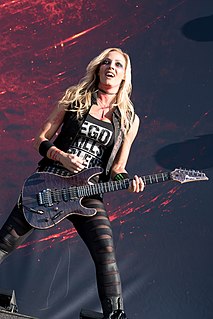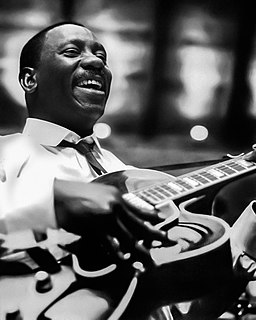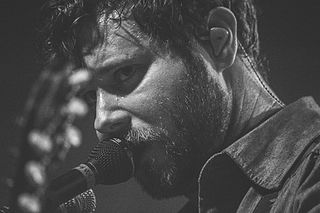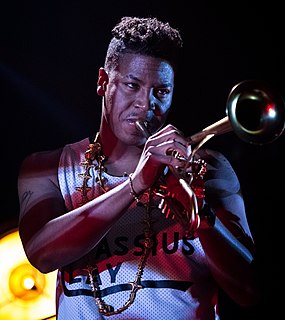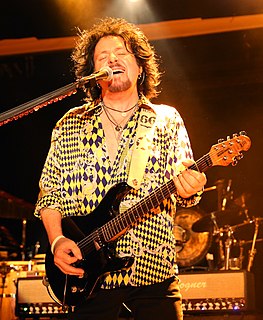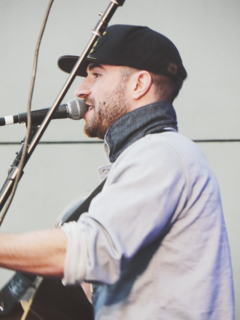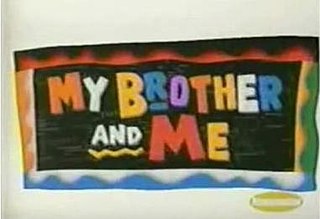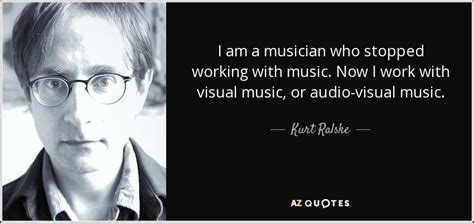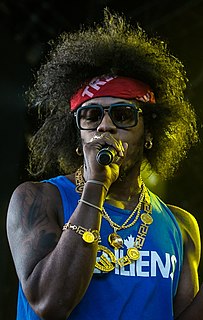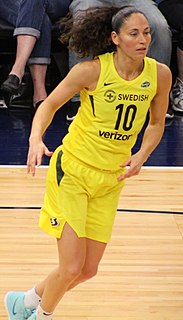A Quote by Nita Strauss
The solo album is really my way of branching out and doing my own thing. I'm mostly known for playing other people's music, so this is a way to just do something that is purely from my heart and my creativity. So it's really exciting.
Related Quotes
I have a really good relationship with my label and with people I've worked with since I was younger. I've always had a really good relationship, with both men and women. I think, for me, the way I face sexism in the music industry is when people are like, "Oh, she must not write her own music." That's frustrating, in a way. But it's cool. I'm mostly just like, "Meh." I'm just doing my thing.
You know, John Coltrane has been sort of a god to me. Seems like, in a way, he didn't get the inspiration out of other musicians. He had it. When you hear a cat do a thing like that, you got to go along with him. I think I heard Coltrane before I really got close to Miles [Davis]. Miles had a tricky way of playing his horn that I didn't understand as much as I did Coltrane. I really didn't understand what Coltrane was doing, but it was so exciting the thing that he was doing.
When I'm representing my music live I think of it very much in a rock band sense. When I first started doing festivals in the 90s there really weren't other DJs playing the stages I was playing. So I felt I was being afforded an opportunity to kind of make a statement about what DJ music can be live. In the 90s, if you were a DJ you were in the dance tent, and you were playing house music and techno music. There was no such thing as a DJ - a solo DJ - on a stage, after a rock band and before another rock band: that just didn't happen.
People call what we do "stretch music." This is our style, and one of the newer, in vogue ways of playing creative, improvised music. It really grew out of me trying to address something that I saw in my everyday life in my neighborhood - trying to develop that and refine that and excavate exactly what that was in a way that, when I communicated it, it was palpable and easily read. That started really early. Why it started was from something that I was really angry about.
Expression is never considered a given, and it is in fact maybe not what's most interesting about making art. Making art, since 1960 or something, is many things: it's a way of doing philosophy, it's a way of opening a dialogue, it's a way of putting a fact or a question out into the world, or a way of drawing people into new relationships, or a way of interrogating history. It's all these other sorts of strategies or techniques or processes that are really interesting and really valuable.
I take music really seriously. I haven't been doing this for too long, but I've been loving music for a long time. It wasn't really about other artists. I just wanted to do something more for me. I wanted to make a better life for my mom. I didn't have any way to take care of her, and I wanted to make a better way. Music was an outlet, so I went with it, and there you go.
The only thing that I've really noticed in my own experience is just people kind of saying that a woman, when they react to something exciting, 'Oh, that's a masculine way of reacting.' And to me, that's absurd. It's like, that's how humans - they get excited, and you yell, and you jump, and you flex. That's what you do.
For me, writing music is a way of processing the world. It's not a concrete thing, as in, "This piece is about giraffes." It's much more of an emotional sort of thing. I want people to find something out about themselves through my music, something that was inaccessible before, something that they were suppressing, something that they couldn't really confront.
